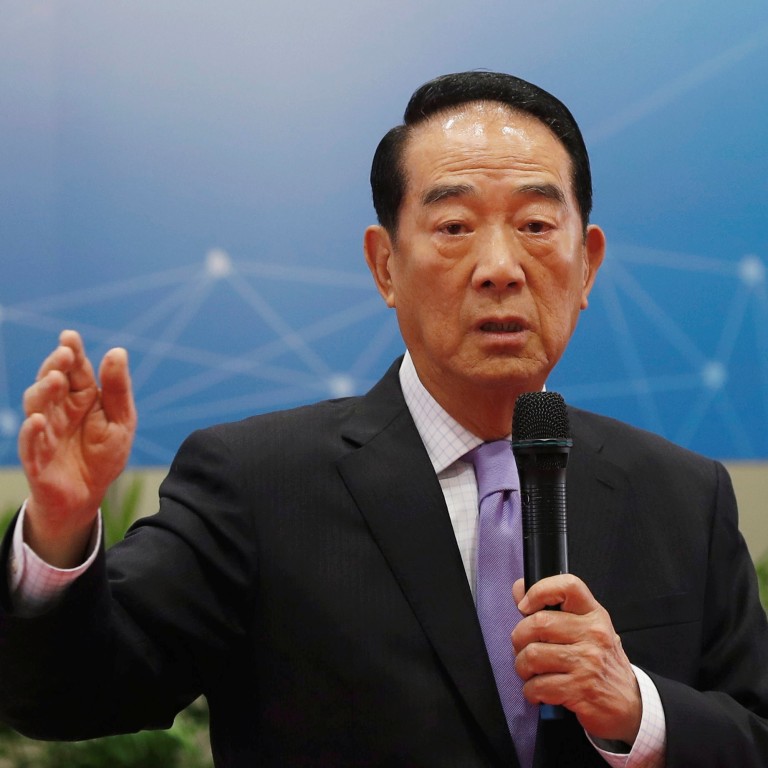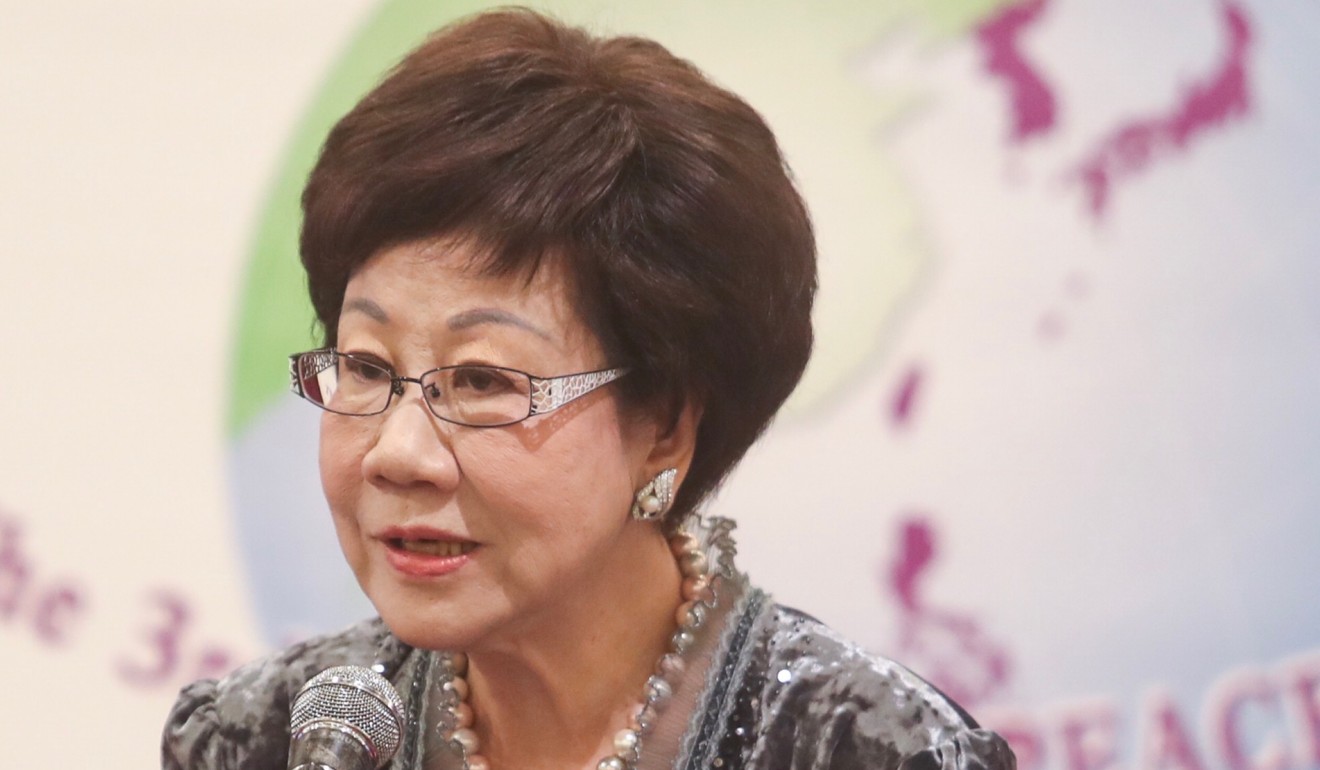
Taiwan’s James Soong Chu-yu may join presidential race but Annette Lu Hsiu-lien falls by wayside
- 2020 bid would be Soong’s fourth run for top post and he is not expected to win this one either
- Former vice-president Lu fails to win enough public signatures, blames her former party
Analysts said while 75-year-old Lu wanted to run because of frustration over what she saw as the demoralisation of the DPP under current President Tsai Ing-wen, Soong was motivated by a fight for the political survival of his People First Party (PFP) in a system dominated by the DPP and its main opposition, the mainland-friendly Kuomintang (KMT).
The PFP’s organisation affairs director Chang Sho-wen revealed on Monday that party chairman Soong, 77, was likely to announce his presidential bid before the deadline for qualified political parties to register their candidates for nomination on November 22.

“The chairman is seeking advice from other political bigwigs and there is an 80 per cent possibility of him running,” Chang said, adding that the party’s executive committee had been unanimously behind a Soong candidacy at its October 28 meeting.
Chang said Soong would declare his running mate at the same time he announced his presidential bid, in line with Central Election Committee requirements that candidates and their running mates register their candidacies at the same time.
A party source said a recent opinion survey commissioned by the PFP had found 35 per cent of people still undecided between Tsai and Han, boosting internal expectations that Soong could garner a sizeable number of votes.
Analysts regarded a Soong victory as “mission impossible” but pointed out his candidacy could benefit other PFP hopefuls in the race for the legislature. Political commentator Jaw Shau-kong said Soong should know well enough that he would not be able to win the battle.
“But if he does not show up, there would be no leader from the PFP strong enough to help its candidates running for legislature posts,” he said, speculating that Soong would “most likely” join the presidential race, “but not for himself, rather for his own party”.
There are other incentives for the party. Under Taiwan’s electoral system, if a party captures 3.5 per cent of total votes, it qualifies for an annual NT$20 million (US$657,000) subsidy from the government. And, if it can pick up 5 per cent of the vote, it qualifies for a number of at-large seats in the legislature, as well as the right to name its presidential candidate in the next term.
It was the PFP’s success in the 2016 presidential poll, when it won more than 5 per cent, which has given it the right to put forward its choice of candidate, without having to collect the 280,384 public signatures which have proven a stumbling block for former vice-president Lu.
She tried to run on a platform of putting an end to the long-term confrontation between the DPP and the KMT and taking the island into a more neutral relationship with the mainland.
Ironically, it was the Soong-led PFP’s presence on the 2000 ballot which paved the way for Lu to serve as the DPP’s first vice-president, alongside former president Chen Shui-bian. More recently, she has been fighting a lone battle against her former party and a government system she detests.
“If I was elected, I would do all I could to end the unfair and demoralised system led by the DPP and make Taiwan a neutral state in the world,” she said in a recent briefing for foreign media stationed in Taiwan. She also said she would try to seek peace with Beijing.
Taiwan set for pro-mainland fake news deluge before presidential poll
Instead, Lu was forced to quit her presidential bid when she failed to cross the public endorsement threshold by Saturday’s deadline.
In a statement released on Saturday shortly before the deadline, Lu said she could not complete the signature collection process “for legal and political reasons”. She offered sincere apologies to her supporters but added that the election campaign had allowed her to “discern the good and evil sides” of human nature.
Lu claimed that, during the collection process, many of her 180 collection stations had faced threats from “police or certain politicians” to close down, which had discouraged her volunteers. She also questioned the requirement by the election commission for endorsers to provide a copy of their identity cards, which she said infringed on the personal privacy of citizens and contradicted the island’s Constitution.

